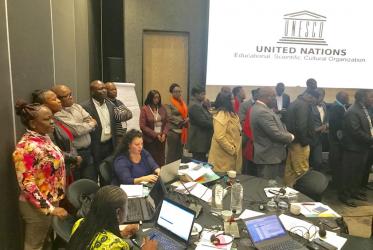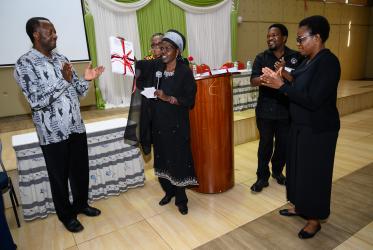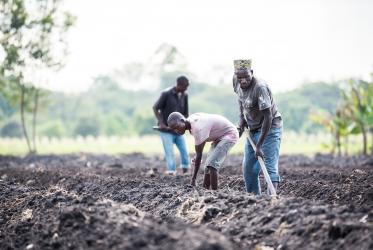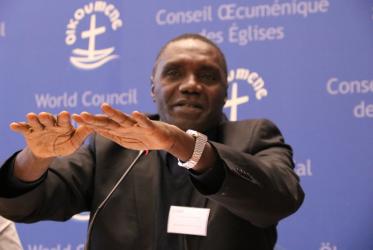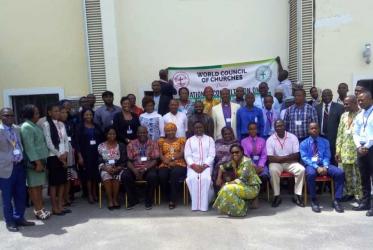Displaying 21 - 40 of 94
Knowledge of gender roles deepens in Togo
03 June 2019
Faith and HIV treatment go hand in hand
06 March 2019
Agreement works toward food security in South Sudan
23 February 2019
Young people in Nigeria focus on positive masculinity, femininity
14 December 2018
WCC hones training on attitudes toward HIV treatment
06 December 2018
Dr Cecile De Sweemer, the doer of God
30 November 2018
Pan African Women of Faith issue fervent Call to Action
20 November 2018
WCC to ring with children’s voices across the world
16 November 2018
Worrying food shortages compel faith action
19 October 2018
In Kenya, issues of young people come to the forefront
19 October 2018
